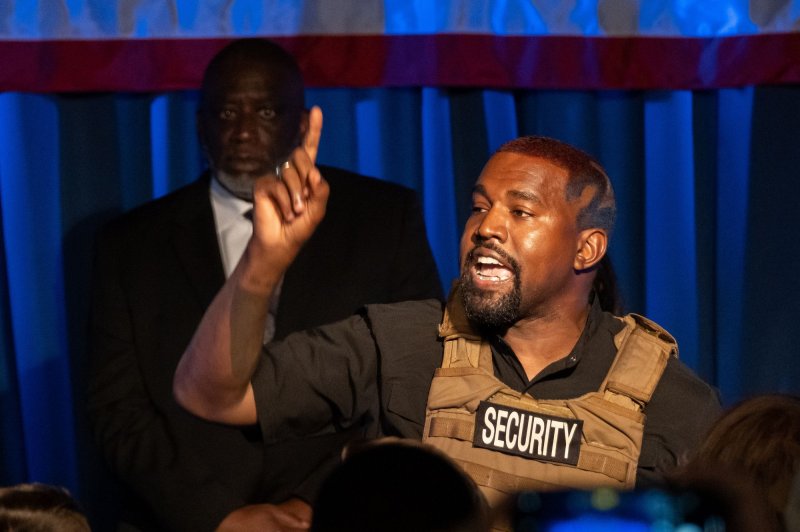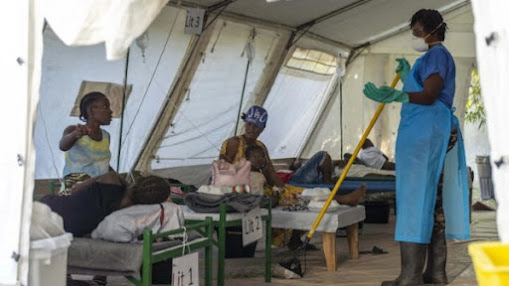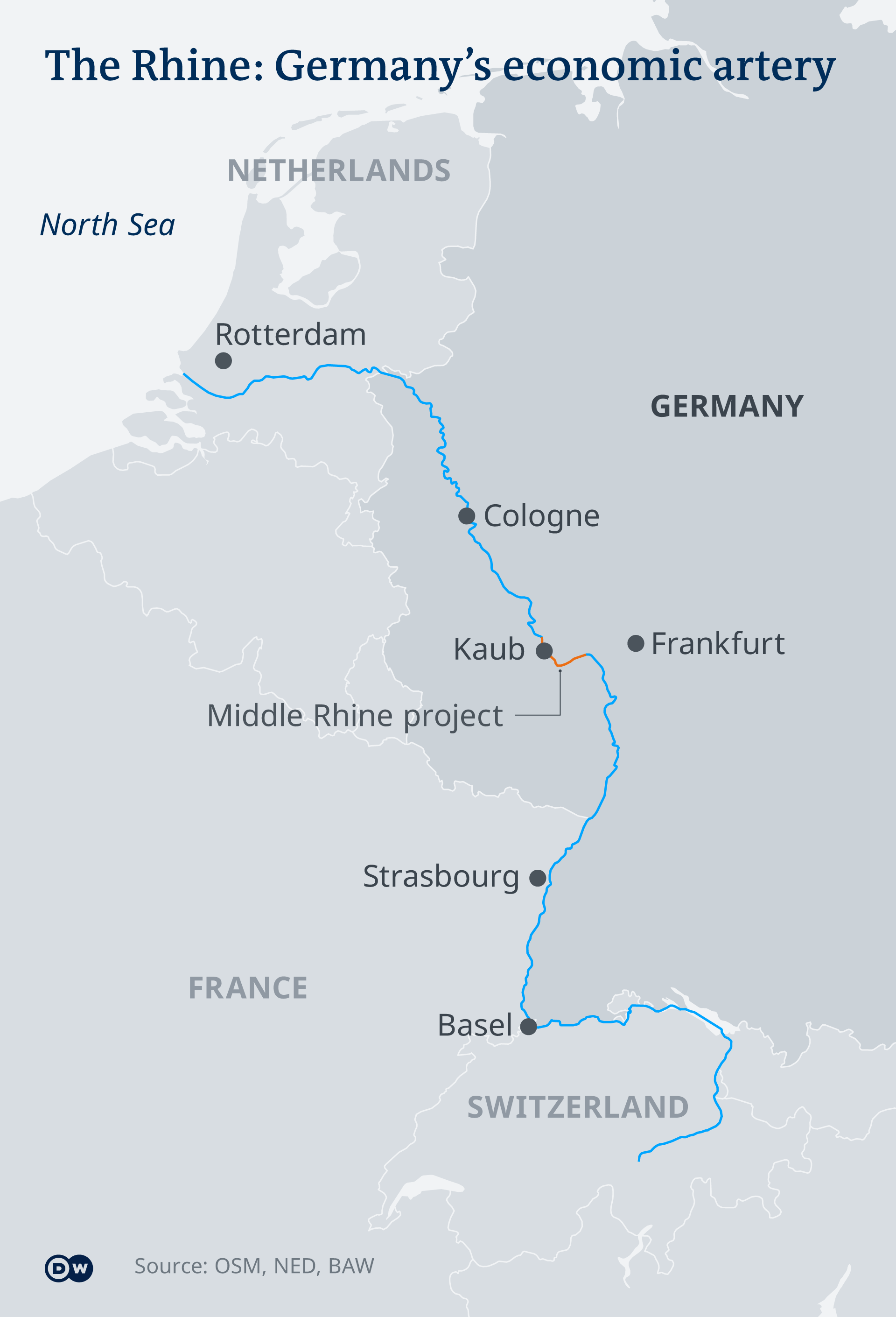Reuters
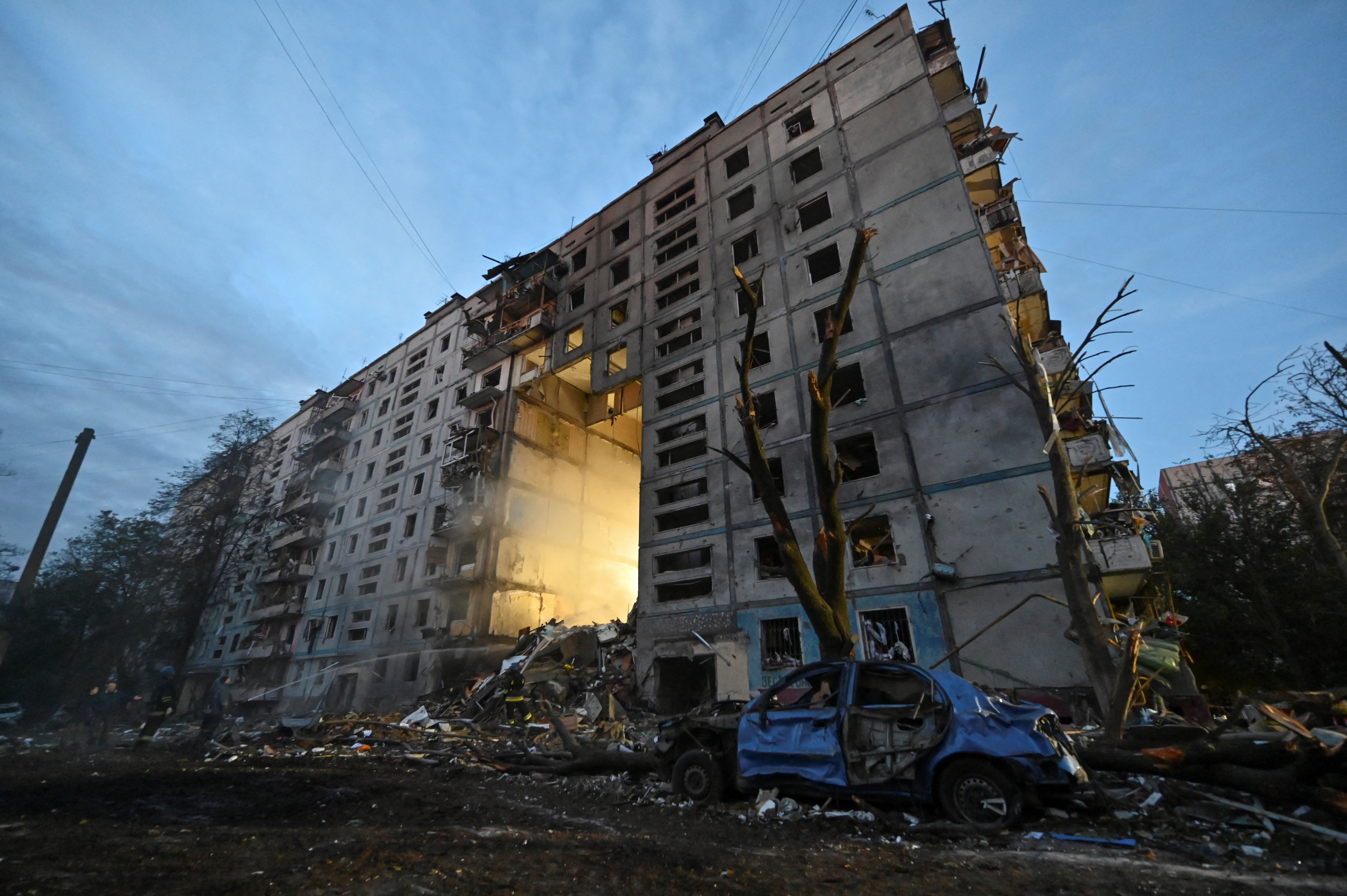
Shelling levels five residential buildings overnight
Nine-storey building partially destroyed
People trapped under rubble, rescue operations underway
Zelenskiy calls strikes 'merciless'
KYIV, Oct 9 (Reuters) - A Russian missile attack early on Sunday struck an apartment block and other residential buildings in Ukraine’s southeastern city of Zaporizhzhia, killing at least 13 people and injuring 87 others, including 10 children, Ukrainian officials said.
The pre-dawn fusillade was the second of its kind against the city in three days. It came a day after a blast hit Russia’s road-and-rail bridge to Crimea, the key supply line for Russian forces battling to hold territory around the southern Ukrainian city of Kherson.
Russian aircraft launched at least 12 missiles into Zaporizhzhia in the latest strike, partially destroying a nine-storey apartment block, leveling five other residential buildings and damaging many more, said Oleksandr Starukh, governor of the Zaporizhzhia region.
"Twelve missiles came, all from planes," he said on state-run television.
At least 13 people died and 87 others were wounded, 60 of whom were hospitalized, regional officials said. The wounded included 10 children.
The rescue operation at the nine-storey apartment building was complicated by a fire that broke out in the rubble, Starukh said.
"We pulled people out quickly and saved eight people already, but when the fire starts then people (under the rubble) have practically no chance of surviving as there is no oxygen," he added.
Ukrainian President Volodymyr Zelenskiy condemned the attack as "absolute evil" by people he called "savages and terrorists", vowing those responsible would be brought to justice.
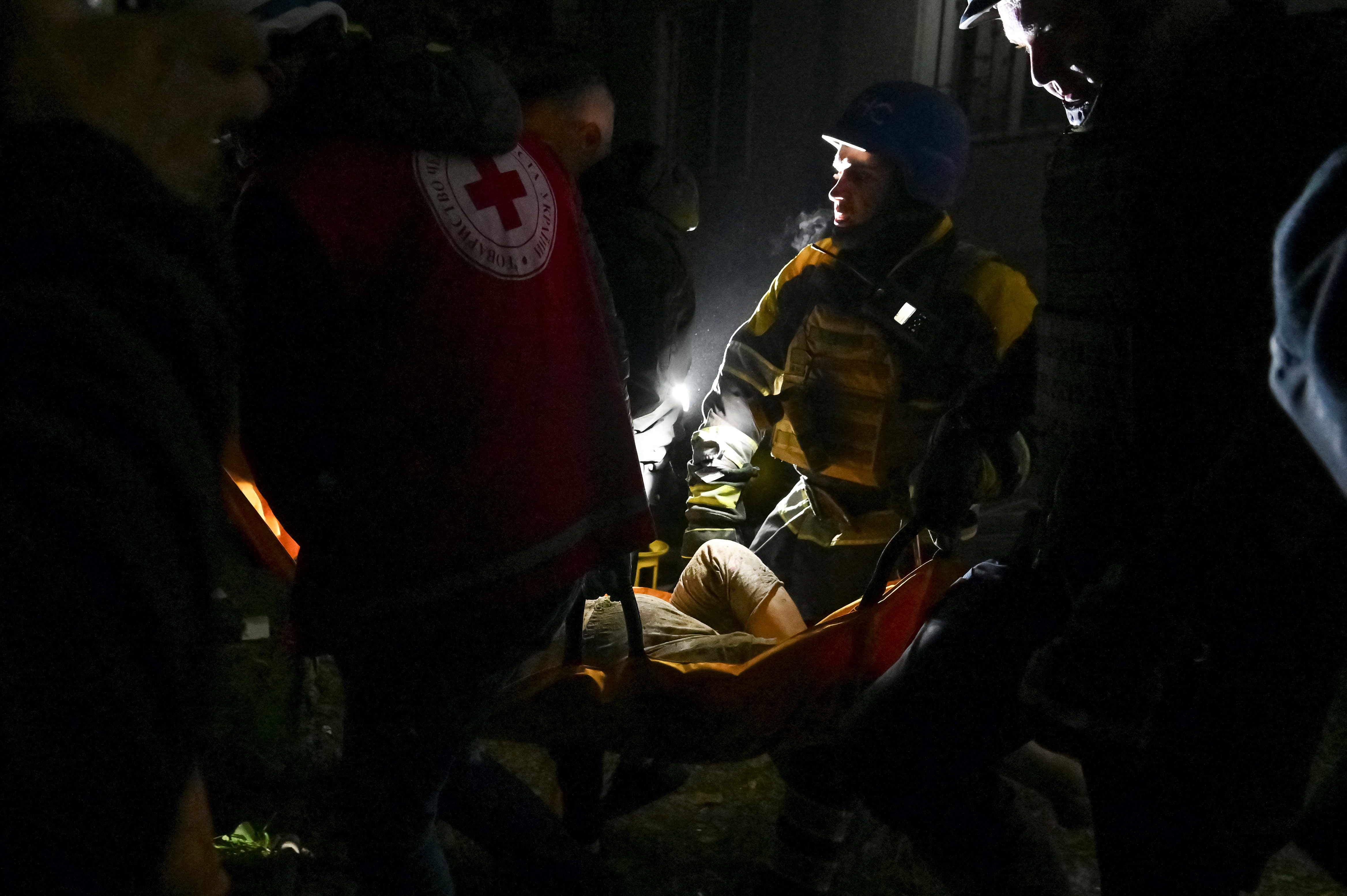
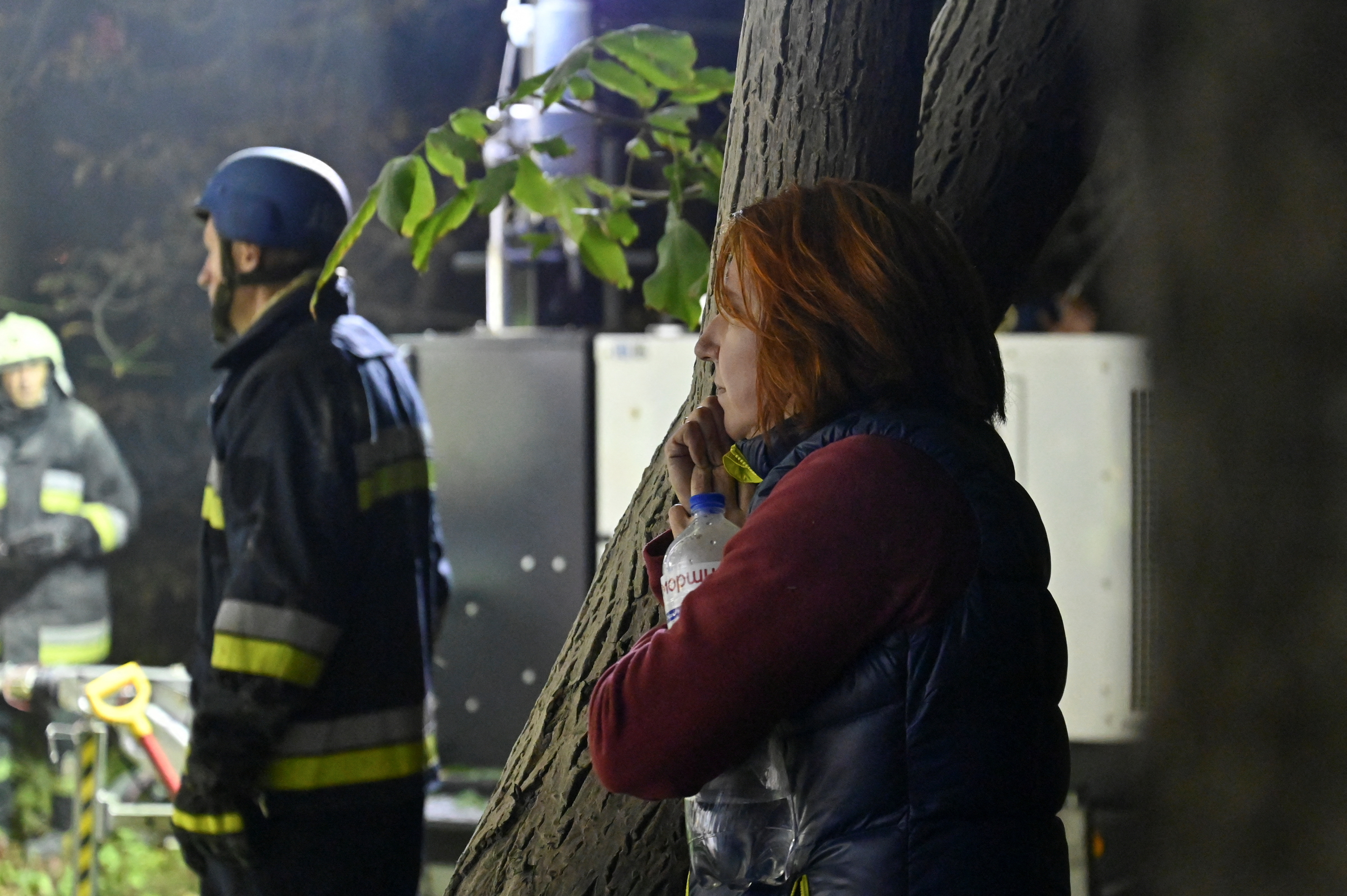
10/10
A local woman from a residential building heavily damaged by a Russian missile strike looks at the rescue work, amid Russia's attack on Ukraine, looks at a work of rescuers in Zaporizhzhia, Ukraine October 9, 2022. REUTERS/Stringer
Zaporizhzhia city, about 52 km (30 miles) from a Russian-held nuclear power plant, has been under frequent shelling in recent weeks, with 19 people killed on Thursday.
“Zaporizhzhia again. Merciless strikes on peaceful people again. On residential buildings, just in the middle of the night," Zelenskiy said on the Telegram messaging app.
Emergency workers and firefighters cordoned off the nine-storey building and dug for survivors and casualties in the smouldering rubble of a massive central section that had collapsed.
The blast wrecked cars and left torn metal window frames, balconies and air conditioners dangling from the building’s shrapnel-pitted facade.
Rescue workers carried the bodies of residents who died out through a window and laid them out on the ground under blankets and in body bags.
Most of the Zaporizhzhia region, including the nuclear plant, have been under Russian control since the early days of Russia's invasion. The capital of the region, Zaporizhzhia city, remains under Ukrainian control.
Ukraine, the United States, the European Union, and human rights organizations have accused Russia of committing war crimes since its full-scale invasion began in February, saying attacks on civilian infrastructure, including schools and hospitals, have killed and wounded thousands of people.
Moscow denies deliberately attacking civilians during what it calls a “special military operation” to demilitarize its neighbour.
'Residents have been left shocked by the strikes in Zaporizhzhia'
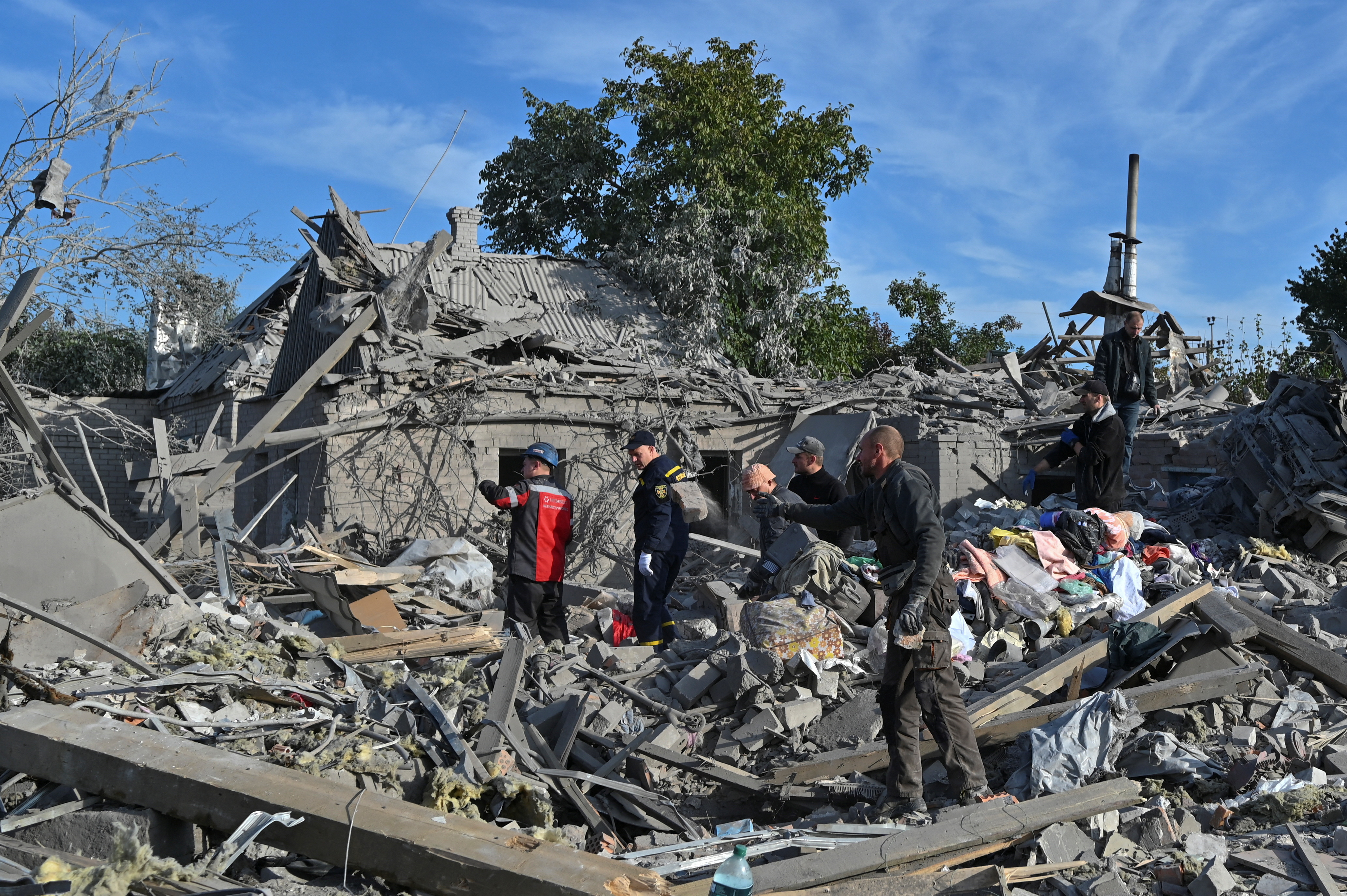
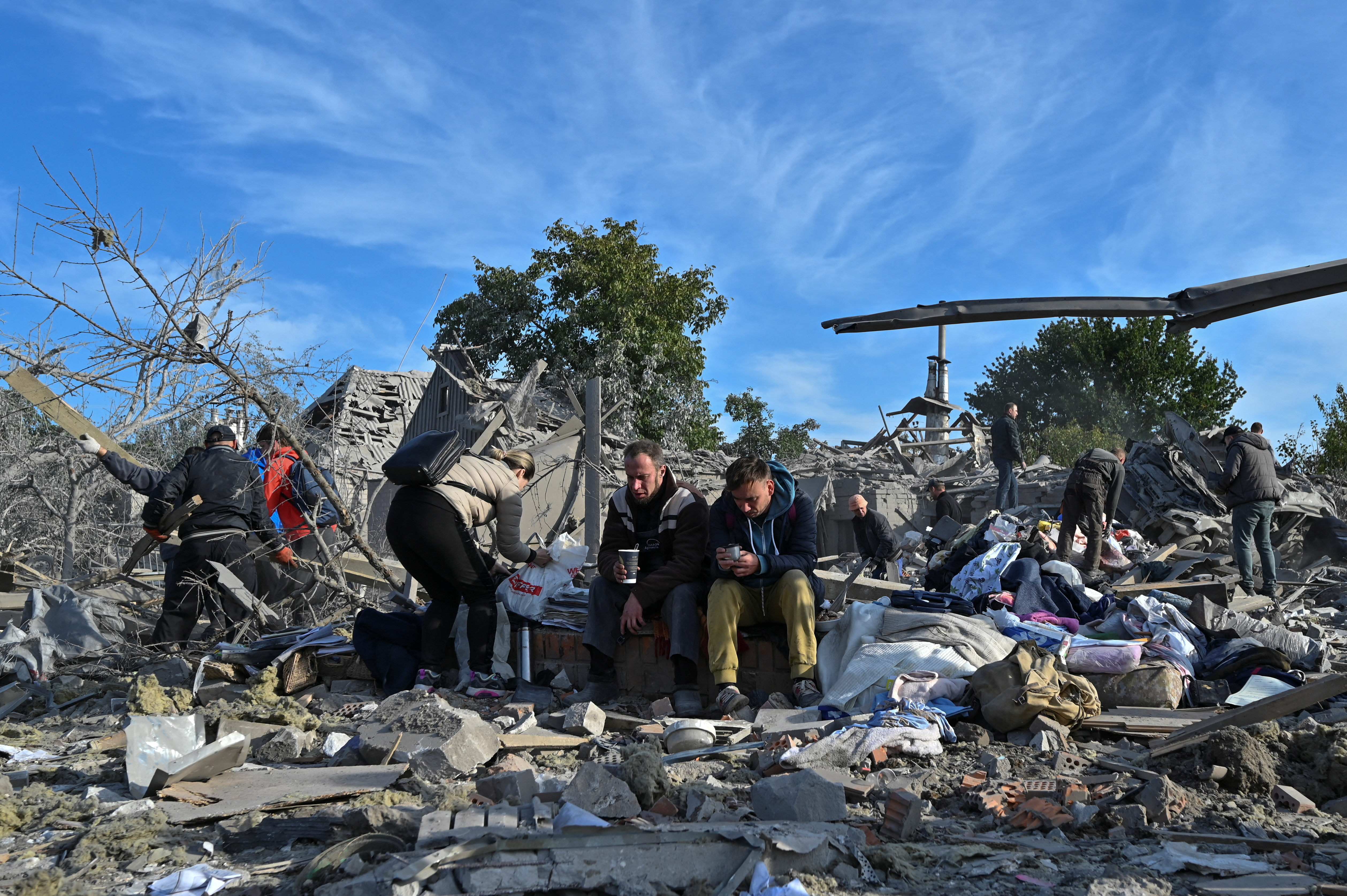
1/20
Rescuers and local residents remove debris at a site of a residential area heavily damaged by a Russian missile strike, amid Russia's attack on Ukraine, in Zaporizhzhia, Ukraine October 9, 2022.
Summary
Russian missile attacks in southeastern Ukraine kill 13
Russia says rail traffic across bridge running on schedule
Bridge across Kerch Strait vital to supply Russian troops
Imposing structure is a symbol of Russia's annexation of Crimea
KYIV, Oct 9 (Reuters) - A Russian missile attack early on Sunday struck an apartment block and other residential buildings in Ukraine's southeastern city of Zaporizhzhia, killing at least 13 people and wounding 87 others, including 10 children, Ukrainian officials said.
Rail services and partial road traffic meanwhile resumed a day after a powerful blast damaged a bridge linking Russia to Crimea that is a key supply route to Moscow's forces battling in southern Ukraine and an imposing symbol of its annexation of the peninsula.
Saturday's explosion on the bridge over the Kerch Strait prompted gleeful messages from Ukrainian officials but no claim of responsibility. Russia did not immediately assign blame for the blast, which images showed blew away half of a section of the bridge's roadway, with the other half still attached.
The pre-dawn fusillade in Zaporizhzhia on Sunday was the second of its kind against the city in three days.
Russian aircraft launched at least 12 missiles, partially destroying a nine-storey apartment block, levelling five other residential buildings and damaging many more, Oleksandr Starukh, governor of the Zaporizhzhia region, said on state-run television.
At least 13 people died and 87 others were wounded, 60 of whom were hospitalized, regional officials said. The wounded included 10 children.
Ukrainian President Volodymyr Zelenskiy condemned the attack as "absolute evil" by people he called "savages and terrorists", vowing those responsible would be brought to justice.
Zaporizhzhia city, about 52 km (30 miles) from a Russian-held nuclear power plant, has been under frequent shelling in recent weeks, with 19 people killed on Thursday.
Emergency workers and firefighters cordoned off the nine-storey building and dug for survivors and casualties in the smouldering rubble of a massive central section that had collapsed.
The blast wrecked cars and left torn metal window frames, balconies and air conditioners dangling from the building's shrapnel-pitted facade.
Most of the Zaporizhzhia region, including the nuclear plant, have been under Russian control since the early days of Russia's invasion in February. The capital of the region, Zaporizhzhia city, remains under Ukrainian control.
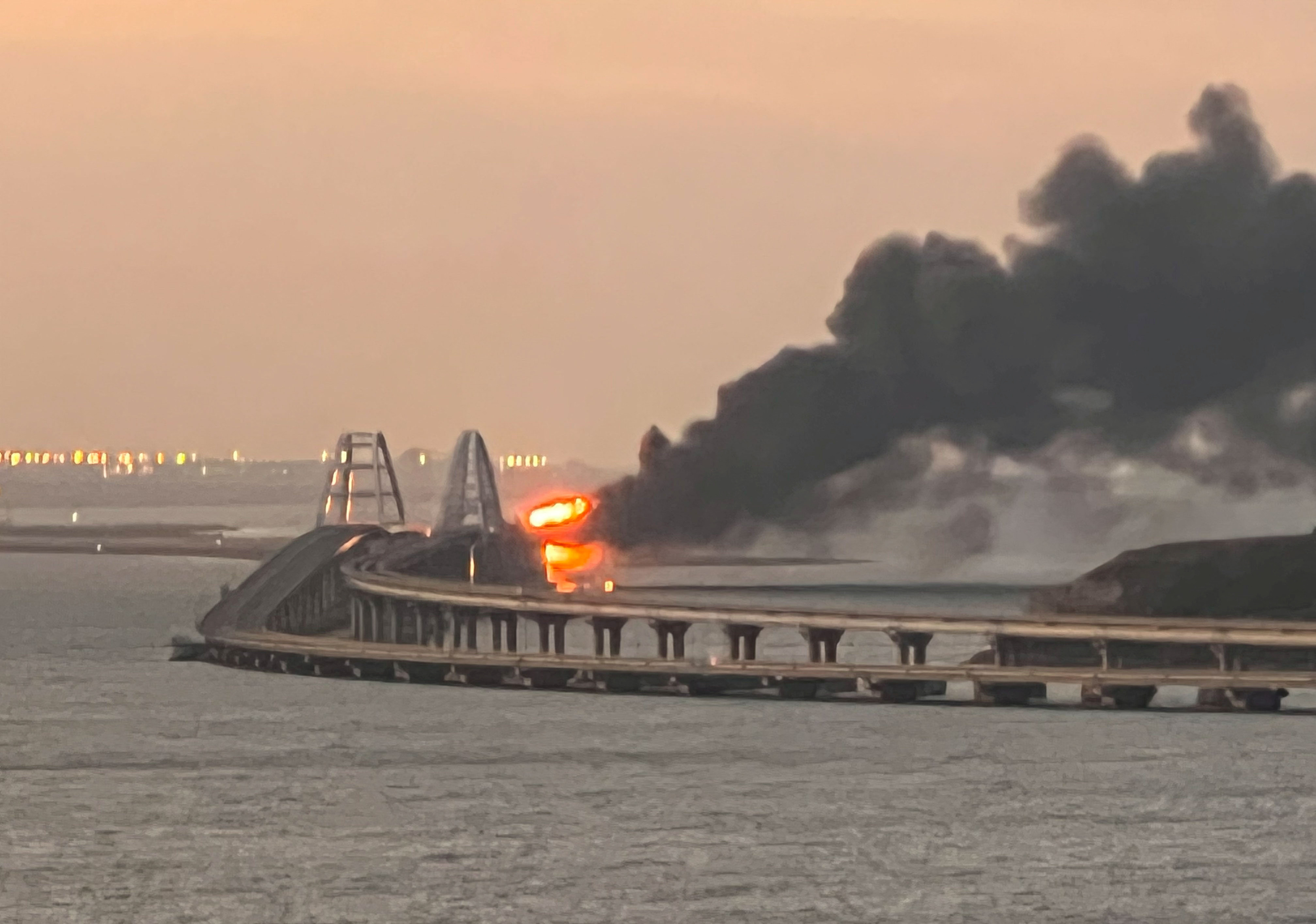
KERCH STRAIT
Russian Deputy Prime Minister Marat Khusnullin said divers would start work on Sunday examining damage to the Crimea Bridge, with a more detailed survey above the waterline expected to be complete by day's end, domestic news agencies reported.
"The situation is manageable - it's unpleasant, but not fatal," Crimea's Russian governor, Sergei Aksyonov, told reporters. "Of course, emotions have been triggered and there is a healthy desire to seek revenge."
Russia's transport ministry said freight trains and long-distance passenger trains across the bridge were running according to schedule on Sunday. Limited road traffic resumed on Saturday around 10 hours after the blast.
"Only passenger cars will use the road section of the Crimean bridge until a special order is issued. The railway line will operate as normal. Buses of all types and heavy vehicles will be transported by ferry," Aksyonov wrote on the Telegram messaging app.
It was not yet clear if Saturday's blast was a deliberate attack, but the damage to such a high-profile structure came amid battlefield defeats for Russia, and could further cloud Kremlin reassurances that the conflict is going to plan.
Aksyonov has said the peninsula had a month's worth of fuel and more than two months' worth of food. Russia's defence ministry said on Saturday its forces in southern Ukraine could be "fully supplied" through existing land and sea routes.
Russia seized Crimea from Ukraine in 2014 and the 19-km (12-mile) bridge linking the region to its transport network was opened with great fanfare four years later by President Vladimir Putin.
Kyiv demands that Russian forces leave the Black Sea peninsula, as well as Ukrainian territory they have seized in the invasion Putin launched in February.
The bridge is a major artery for Russian forces in southern Ukraine and for the port of Sevastopol, where the Russian Black Sea fleet is based.
Russian officials said three people were killed in the blast early on Saturday morning. On the bridge's upper level, seven fuel tanker wagons of a 59-wagon train heading for the peninsula also caught fire.
Russia's federal anti-terrorism agency said on Saturday that a freight truck blew up on the bridge's roadway. It said two spans of road bridge had partially collapsed, but that the arch spanning the channel through which ships travel between the Black Sea and Azov Sea was not damaged.
WorldRussian bodies, shattered vehicles mark Moscow's loss of Ukrainian town, article with video
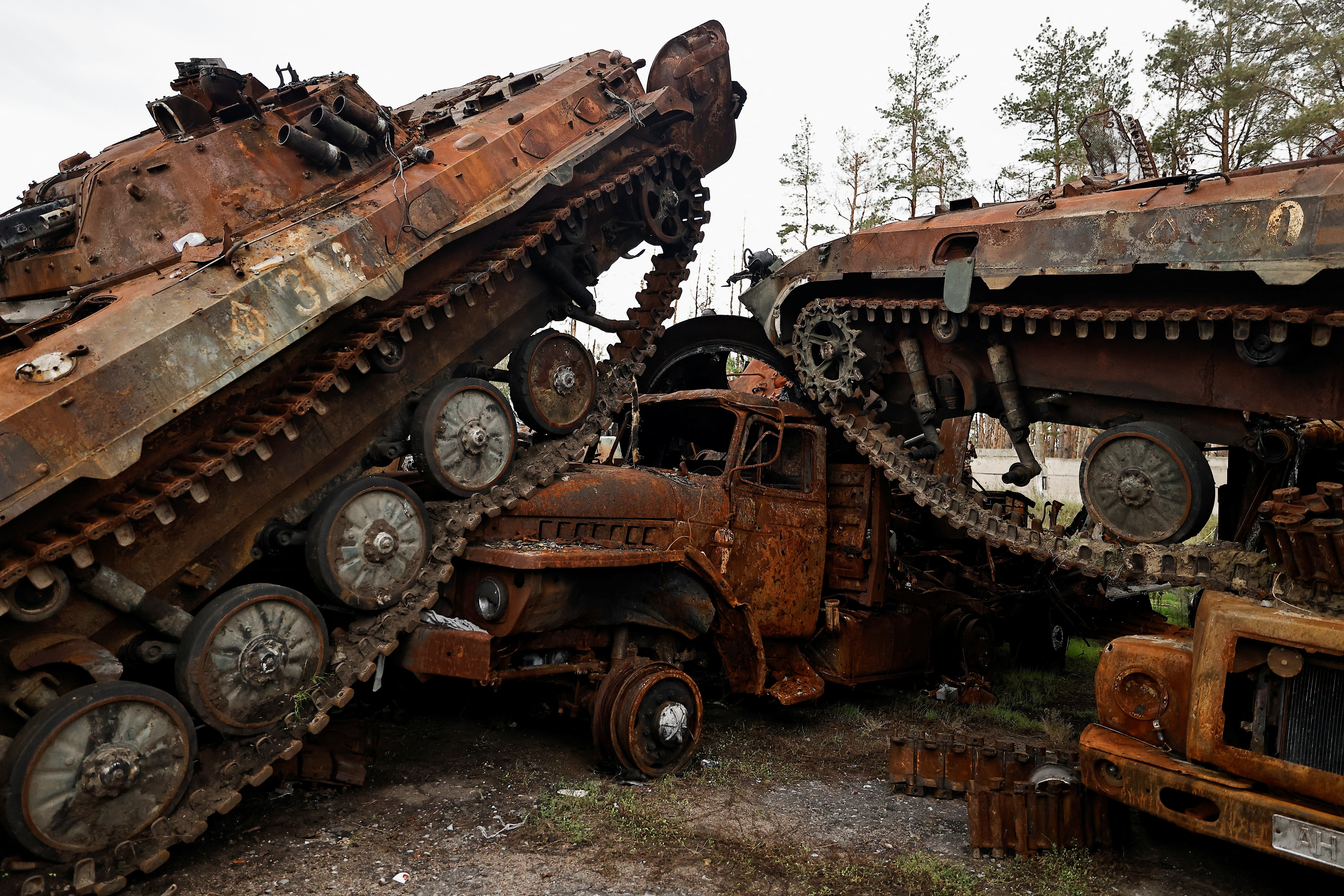
WorldUkrainian pensioner who lost legs defies Russian occupation, article with video
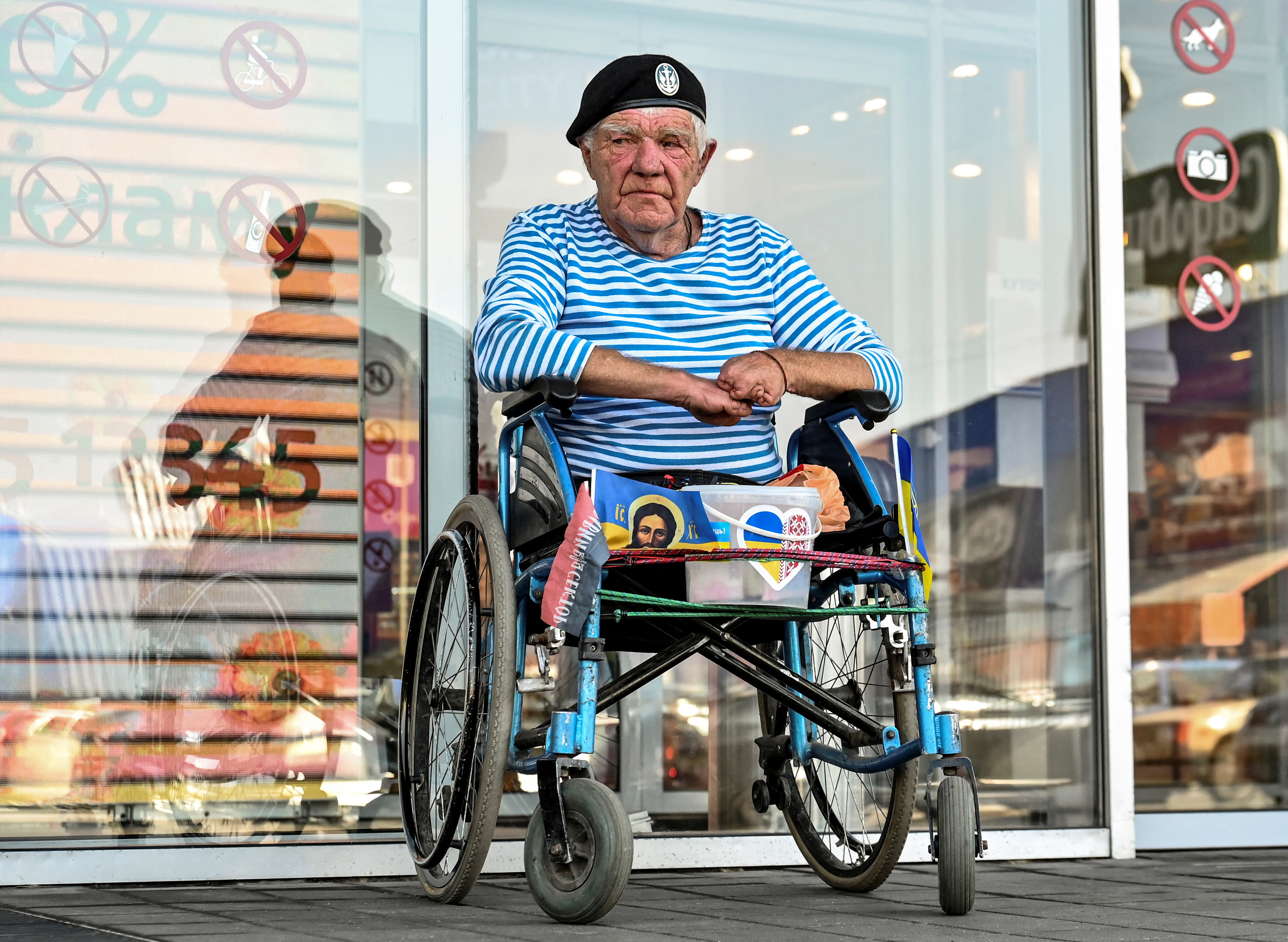
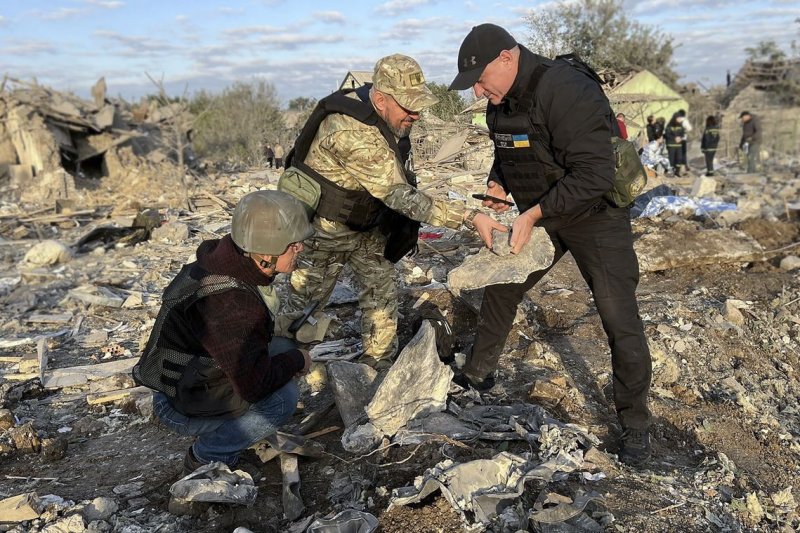
Ukrainian rescuers inspect debris of a missile at the site of shelling in Zaporizhzhia, Ukraine, on Sunday. At least 17 persons were killed and 49 injured. Photo by Ukraine National Police/EPA-EFE
Oct. 9 (UPI) -- Russian forces blitzed the city of Zaporizhzhia overnight, firing a barrage of missiles that killed at least 17 people, Ukrainian officials said.
Anatolii Kurtiev, the acting mayor of Zaporizhzhia, said on Telegram that at least 40 other people were injured. Five homes were destroyed and dozens of buildings were damaged, including four educational institutions.
"At this time, 17 people are known to have died. Sincere condolences to the relatives," Kurtiev said.
Kurtiev said that 35 of the 40 people injured by the rocket strikes are in moderate condition and are being treated in city hospitals.
He added that two children are also being treated and are in "light condition" while Oleksandr Starukh, the governor of the Zaporizhzhia province, said that at least six children were hospitalized after the rocket strikes.
A video shared to Twitter by the citizen media organization Ukraine Front Lines shows dozens of emergency officials and volunteers sifting through the debris and looking for survivors.
Starukh said preliminary information showed that Russia had fired at least 12 missiles on Zaporizhzhia which partially destroyed a nine-floor apartment building, sharing images of the destruction on Telegram.
"There may be people under the rubble. A rescue operation is underway at the scene. Eight people have already been rescued. The victims are provided with the necessary assistance," Starukh said.
Russia has apparently been ramping up its targeting of civilians as Moscow fights to keep a hold on the four Ukrainian provinces it illegally annexed, including Zaporizhzhia - which is home to the largest nuclear power plant in Europe.
The rocket strikes also came a day after a blast damaged the Kerch Strait Bridge, the sole bridge linking Russia to Crimea -- the Ukrainian territory previously illegally annexed by Russia in 2014 as relations between the two countries deteriorated.
It was not immediately clear if the rocket strikes on Zaporizhzhia were linked to the destruction of the bridge, but Russian war bloggers criticized Russian President Vladimir Putin for not publicly commenting on the damage to the bridge and calling for revenge.
"The Russian Federation is simply hit on the cheek and spit into an obediently open mouth," one Russian blogger wrote on Telegram.
"There are no such public responses for the results of activities, because the Russian Federation is run by traitors and degenerates. Degenerates and traitors."
Another Russian war blogger wrote on Telegram that "150 million people are eager to know if the time has come for the stubborn Ukrainian boss to understand what will be the retaliatory target" after the destruction of the bridge.
"If, after today's terrorist attack on the Crimean bridge, organized by Ukrainian terrorists personally by the President of Russia, no measures and decisive responses are taken, then this will be taken as weakness of the President himself," another Russian blogger wrote on Telegram.
"The Crimean bridge is a symbol of the Putin era. The attempt on the Crimean bridge is an attempt on Putin himself. In response to this terrorist attack, not a single bridge should remain in Ukraine."
Russia's Transport Ministry told the Moscow-controlled news agency TASS that passenger and freight traffic has since resumed across the bridge to Crimea.
"Currently, the railway traffic of long-distance passenger and freight trains across the Crimean Bridge proceeds under the statutory schedule," the statement from Russia's Transport Ministry reads.
Russian officials said that the blast had killed three people and caused two lanes to collapse but a lane remains intact.
"This is a future without occupiers. Throughout our territory, in particular in Crimea," Ukrainian President Volodymyr Zelensky said in his nightly address Saturday.
"If the occupiers flee while they have a chance, this will be the best option for them. If they are forced to stay, any occupier can find a way to surrender to Ukrainian captivity."


